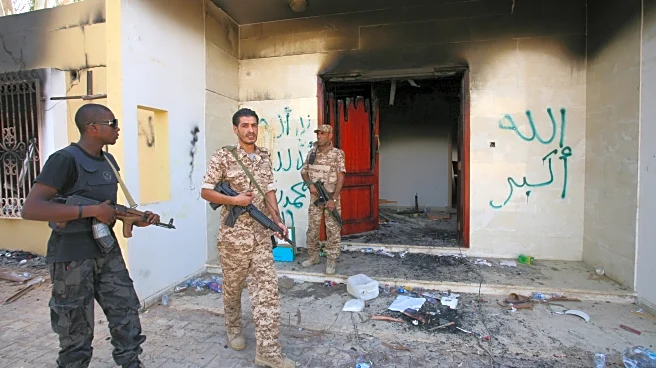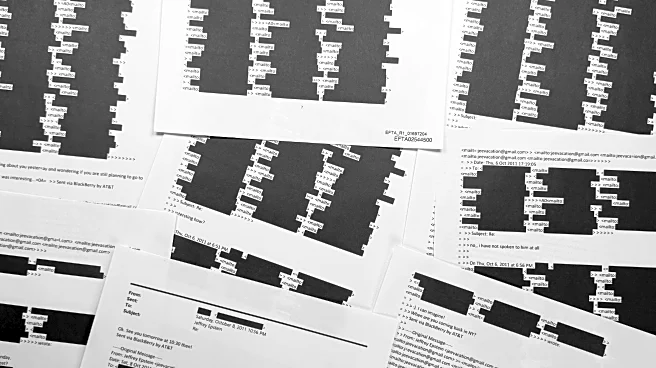What's Happening?
In recent years, extreme weather events exacerbated by climate change have exposed vulnerabilities in the U.S. property insurance market. FedNat Insurance Co., once a major insurer in Louisiana, went bankrupt after failing to manage the financial impact
of multiple hurricanes and a winter storm. This bankruptcy left homeowners like Jennifer and Dean Bye struggling to secure insurance coverage. FedNat's collapse is part of a broader trend where insurance companies in disaster-prone states like Florida, Louisiana, California, and Texas have either withdrawn or gone bankrupt, dropping millions of home insurance policies. The Byes, who lost their home to Hurricane Ida, are among many facing high premiums and limited coverage options through state-mandated insurance programs.
Why It's Important?
The instability in the insurance market highlights the challenges posed by climate change to both insurers and homeowners. As insurance companies struggle to remain profitable amid increasing disaster claims, homeowners face rising premiums and reduced coverage options. This situation forces many onto state-backed insurance plans, which are costly and offer limited protection. The cycle of insurers withdrawing from high-risk areas exacerbates the problem, leading to more people relying on state plans. This trend underscores the need for systemic reforms in the insurance industry and public policy to address the growing risks associated with climate change.
What's Next?
State lawmakers in Louisiana and Florida have implemented reforms aimed at stabilizing the insurance market, including attracting new insurers and depopulating state-backed plans. However, the effectiveness of these measures will be tested by future climate events. Long-term solutions may require legislative action to restrict development in high-risk areas and incentivize homeowners to adapt to climate change. The resilience of the insurance market will depend on the ability of new insurers to withstand repeated disasters and the willingness of policymakers to enact potentially unpopular measures to mitigate risk.
Beyond the Headlines
The insurance industry's response to climate change raises ethical and legal questions about the responsibility of insurers to provide coverage in high-risk areas. The financial burden on homeowners and the reliance on state-backed plans highlight the need for a more equitable approach to insurance coverage. Additionally, the trend of insurers going bankrupt and merging raises concerns about the concentration of market power and the potential for exploitation of policyholders. These issues call for a reevaluation of the insurance industry's role in managing climate risk and protecting vulnerable communities.
















